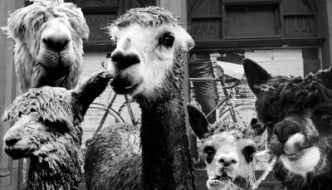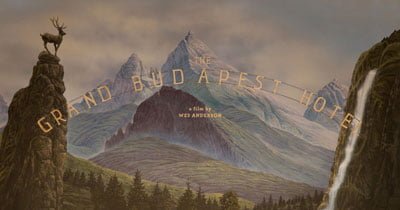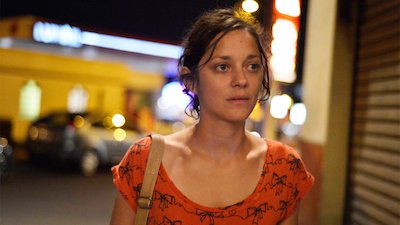LIFF28: Yorkshire Short Film Competition
December 13, 2014
[Image – The Devil on Each Shoulder, Ashley Dean & Nick Blood – courtesy of Leedsfilm.com]
Part of 28th Leeds International Film Festival (LIFF28)
5th – 20th November 2014
Friday 14th November saw the Hyde Park Picture House play host to eight short films, all put together by artists based in Yorkshire. TSOTA went down to check them out…
The Man Who Thought a Hat Was His Wife
Produced by a student from the Leeds College of Art, The Man Who Thought has an interesting premise but is at best an average piece of filmmaking. As titles go it’s fairly self-explanatory; Elliot Leach stars as a man who, for some reason or another, is convinced that a hat is in actual fact his wife. The film plays out as a series of interviews intercut with scenes of the man and his hat/wife having a romantic dinner in.
The most noticeable flaw with The Man Who Thought is the way it is shot. A lot of the scenes are filmed from angles that don’t quite seem fitting, as if not a lot of thought was put into their composition. It could have done with sitting back slightly and re-examining the best way to film each section.
In the lead role Leach is fine, giving a perfectly competent performance. His co-stars however are not quite as convincing; the doctor in particular reads lines with a clunky delivery that sort of distracts from the matter at hand.
As a student production The Man Who Thought is quite good, but shown as it was before the rest of the night’s offerings, the problems it contained really stood out.
Cushy | Fliss Buckles & Cat Jones
Cat Jones’ Cushy was one of the more interesting films of the night. Set in a prison in Yorkshire, it plays out as an extended beat poem, a monologue given by a young inmate who walks us through the life there.
The underscoring music has been well considered, and is used to build tension under what the performer is saying. It brings a sense of an underlying simmering rage to the piece.
It also runs through a whole range of emotions, from amusing scenes around the prison lunch room to the anger the lead feels about the choices that lead to his incarceration. It is in the final few minutes though that the film hits its most powerful note. The prisoner is allowed to meet his family, and through some superb acting we really feel the weight that leaving them behind has placed on him. Jones frames the scene well, with each shot capturing well the thick emotion on screen.
Cushy is a moving commentary on the British prison system, and a worthy winner of this year’s Yorkshire Film Award.
The Devil on Each Shoulder | Ashley Dean & Nick Blood
The story of The Devil on Each Shoulder is a pretty standard affair; a heartbroken man seeks to win back the love of his life, and it all ends in tragedy. The plot, however, is not what’s really important here. Instead, one gets the feeling this film is more about its own technical aspects.
The general aesthetic of the piece is really quite astounding. The house the man lives in looks like something straight out of a Samuel Beckett play, all chipped paintwork and splintered wood with a sense that this may be the end of it all. It helps to give the impression that this man’s life is currently empty, and conveys the fact well.
The puppets too must be praised for how well they were utilised. The two devils are at times both cute and incredibly disturbing, with short, jerky movements and hollow rattling sounds serving to remind us that they are not of this earth. In early scenes, when interposed with scenes of horror and sped-up footage of the human characters, they are actually quite frightening to behold. However, as the film goes on and the tone becomes more hopeful, the same puppets are used to an entirely different effect. They become cute and playful, and are immensely believable.
Children of the Holocaust: Suzanne’s Story | Zane Whittingham
The first full animation of the night was given in the form of a woman’s reminiscences of her childhood during the war. The animation itself was characterful but rather simplistic, and while it is possible that this was intentional there’s a feeling remains that something more could have been done with it.
That, however, is not where the heart of Suzanne’s Story really lies. The main draw of this film was the story itself, which saw a young girl separated from her parents and smuggled to the countryside to be brought up in safety. We’re told how she didn’t really understand why she had to leave even as the tanks rolled in, and that even when she had been moved she still had to stay hidden from Nazi forces. It’s an emotionally affecting tale, made all the more powerful by the knowledge that this really happened to the speaker.
Hunting for Hockney | Alice Dunseath
Like Children of the Holocaust, Alice Dunseath’s Hunting for Hockney is both a simple animation and a deeply touching personal story. In this case, it’s about two friends who one day, on a whim, decide to hunt out the home of artist David Hockney. However, what would otherwise have been a light hearted romp through the Yorkshire countryside is darkened somewhat by the knowledge that they’re doing this to cope with a recent bereavement.
The style on show here is exactly what Children… could have used. Yes, it is simple, but it has also been rendered charming by the style it is drawn in. The film plays out like an animated sketchbook, with Dunseath’s drawings coming alive in front of our eyes and whirling across the screen. The end result is a film that successfully packs more feeling into three minutes than most Hollywood productions could manage in three hours.
Scrap | Lija Jursins, Luca Calabrese & Thomas Bone
Luca Calabrese’s Scrap is yet another odd beast at this year’s festival. Set in an unspecified future, it follows a silent box-headed man as he seeks out things to bring meaning into his solitary existence.
Calabrese’s biggest achievement here is garnering empathy for characters who can express very little emotion by themselves. As mentioned, the lead in Scrap at all times wears a cardboard box over his head, with only two asymmetrical holes cut into the front to denote any kind of expression. Despite this however it at times appears lost, hopeful, forlorn and inquisitive, through nothing more than the slightest shift in the actor’s physicalisation. Similarly, the robot character that shares a house with him is little more than a voice and a crude pixelated face, but something in the voice actor’s delivery makes this character both relatable and extremely likable. When it looks as if it is going to die from neglect, it’s difficult not to feel a pang of guilt.
Also of note is how a convincingly post-apocalyptic landscape has been constructed within the bounds of Yorkshire. The landscape on show in Scrap could be right out of a blockbuster film, with mounds of trash and dilapidated buildings everywhere the eye can see. It fits the story perfectly, and is an impressive piece of location scouting on the production team’s behalf.
Rare | Jim Morgan
A lot of the films on the evening’s programme did a great job of filming the Yorkshire countryside. The best example however was to be found in the form of Rare, a moving character drama from Jim Morgan focusing on the lives of three teenagers in a rural community.
Morgan’s eye for shot composition is very, very impressive. There’s an undefinable ‘Yorkshireness’ about it, something intangible that feels at home in this sleepy Dales town. Each shot is framed absolutely beautifully, from a bus stop by the road to a fireworks display in a field. It’s no surprise that Rare went on to win second place.
His characters too were well-drawn and believable. It was easy to sympathise with Ethen Griffin’s character as he lashed out against his perceived romantic rival, but the guilt he then felt over his actions came across as equally natural. Griffin’s co-stars are equally impressive, portraying well a range of emotions with an impressive level of honesty.
The Last Smallholder | Francis Lee
If there was an award for the film that best reflected the rural aspects of Yorkshire life, it would definitely be won by The Last Smallholder. This is a film about a man who, in his own words, runs ‘the only working farm in the parish of Laycock’. As he approaches the end of his life, he reflects on his career, his legacy and the changing nature of the world around him.
The Last Smallholder has a slow and contemplative tone, taking its time to shoot the dales in all their rural majesty. However, through taking this approach, it runs quite close to becoming dull. This isn’t a film in which very much happens, and compared to the other films on show this is a fact that really stands out.
As a monologue though, it certainly brings up some interesting ideas. Carson Lee’s ruminations on times gone by are emotionally affecting, and the end result is both a celebration of rural life and a swansong for its passing.
Don’t Forget Your Hat | Liam Hughes
A young man lost in the Yorkshire moors is offered a bed for the night by a seemingly kindly old local. However, once they get back there, things quickly take a turn for the worse. It’s not quite what you’d expect from a film based on the song ‘On Ilkla Moor Baht’at’.
As films go, Don’t Forget Your Hat is pretty standard horror fare, relying as it does on the traditional ‘my host is a serial killer’ trope with a dash of north/south rivalry thrown in for good measure. Despite this reliance on cliché though, it’s still a lot of good fun.
The main source of this is the charisma of both performers. There is an endearing naïveté to James Corrigan’s Paul, and he expertly captures the awkwardness of a middle-class young man who is socially out of his depth. David Sterne is equally good as his host, managing to straddle the thin line between sweet country type and dangerous murderer, the end result coming across something like a rural Hannibal Lecter.

There’s also a great deal of talent gone into shooting and editing footage of the Yorkshire landscape. Not only does director Liam Hughes capture it well, the colour mixing succeeds in bringing a haunting creepiness to the hills and dales.
All things considered, Don’t Forget Your Hat is good, but slightly too predictable. The plot is so clearly signposted that it’s easy to expect a twist on the formula-that Sterne will actually turn out just to be a harmless old man. Despite this though, it still has its impressive technical elements, and a suitably scary atmosphere that might leave you considering cancelling next week’s walk up Ilkey.
Adam Button




Comments